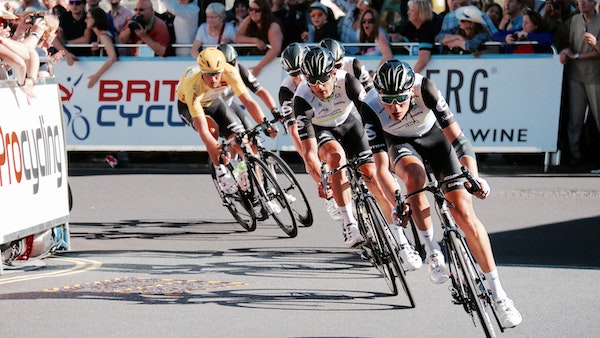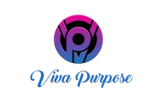What are your publishing goals?
Every author dreams of being the next Stephen King or J. K. Rowling. Most authors are unable to get their manuscripts accepted by traditional publishers and are unsure how to successfully self-publish creating a challenge when defining their publishing goals. Many famous authors have either chosen or been forced to self-publish at one point in their careers. Yet few who actually publish their books achieve the success they dreamed of. As in most endeavors in life, there are varying degrees of success ranging from exceptional success to failure. Whether your publishing experience is a success or failure depends greatly on your goals and what you hope to achieve. If you have not defined your publishing goals you may default to feeling like you've failed when in reality you achieved your goal.
The first step is to clearly define what you are hoping to achieve. You need to define your "why". Why are you pursuing publishing your manuscript? Are you hoping to become a professional full-time author where your book sales support you? Perhaps you are wanting to supplement your income by publishing your work around your primary job. Or, do you simply enjoy writing and feel you have stories or information to share with the world? If you take a moment to consider the meaning of these titles, you can easily see how they define the author in the long run. Full-time Authors will be spending the majority of their time creating, publishing, and marketing their books. A Part-time Author is going to work on their books around their primary income source. And the Pastime Author is going to treat the production and sale of their books more like a hobby. These three different types of authors will have different publishing goals.
For the sake of clarity lets group these author types into three distinct categories: Full-time Authors, Part-time Authors, and Pastime Authors.
Regardless of where you are, over time you may transition to a different type of author. You may start out as a Pastime Author and have one of your books really take off. At that point, you may transition into a Part-time or Full-time Author. Conversely, you may be a Full-time Author and reach a point where you decide to retire. No longer constantly creating your next book or increasing sales you may take a leisurely approach to your next publication. Consider if you were a cyclists. There are billions of people who ride bikes for pleasure. Of the billions, millions compete on their bike in one form or another (similar to book genres). But only a few thousand can support themselves with their cycling. Every one of those cyclists made an investment in a bicycle and some invested much more in additional equipment, travel, entry fees, etc. And every one of them experiences the pleasure of being a cyclist.



Pastime Author
Let's be clear, there is absolutely nothing wrong with being a Pastime Author. Success at this level provides joy and satisfaction to millions of authors. It is no different from those who spend thousands of dollars on equipment and time on the golf course. Or others who give up all their disposable income on scrapbooking. Do not let anyone tell you that you have failed as an author if you have completed the process and achieved your publishing goals. If you are a Pastime Author, it is easy to get discouraged or feel like a failure when you consider the money you've spent publishing your books.

Even if you lose money in the publishing process, you have the satisfaction of sharing your story with the world. Just remember the cyclist, golfer, or scrapbooker and focus on why you are publishing your work in the first place. You have a love for writing and sharing your work with others. If you see the process through and make your book available to your fans you have achieved your publishing goals and are a success.
By approaching your writing and publishing as a pastime you are able to appreciate the joy of the process. Enjoy the process and avoid feeling guilty for the time spent creating a professional product. Similar to the way golfers spend countless hours shaving strokes off their game, it takes time to create quality.
Part-time & Full-Time Authors
There are subtle differences between part-time and full-time authors. Both types of authors have crossed over from approaching publishing as a hobby to a business. They are now entrepreneurs in the publications industry. If this is you, you must be extremely careful not to let the business steal your joy of writing. It is easy for the tasks you once loved to become work and not pleasure. If your goal is to break even or even make some spending money from your book, you're a part-time author. A part-time author is willing to invest more time and money in publishing their book than the pastime author will.
Part-time authors are not supporting themselves fully with their published works. They still require outside income sources to get by. It is very common for Part-time Authors to use their books as a means to sell other products. Others use their book to generate respect or credibility in their field. Part-time Authors may not see revenue directly from book sales but rather from products, services, or salary increases, they produce. The full-time Author gets the satisfaction of doing what they love for a living. They can spend their days fully committed to their craft and producing quality products. Their publications support their lifestyle and they do not need to use outside sources to support them or their publishing efforts.
Define Your Publishing Goals
Now that you know the different types of authors, you need to identify which best describes you. You should establish your goals with your author type in mind. Regardless of the type of author, you must strive for excellence. You should always produce your best. You are offering your knowledge or story to your readers and fans. They deserve the finest offering you can produce. You want to give them your best.
Strive for Excellence With Your Publishing Goals
Take the time to establish your work exceptional. Push yourself to be better. Be more creative, more educational, and more inspiring. Take your readers on a journey and leave them with the satisfaction of knowing they are better for taking it. Make them want to read more. Every aspect of your book must be the best you can produce. The content including grammar, spelling, and flow must be errorless. Your cover and interior artwork and layout must be attractive. If you are hoping to sell books, your marketing must be enticing and effective. You must present the total package.

Try, Try Again
Now that I have challenged you to put your best foot forward, let me take a moment to encourage you. Not every pitch is a strike. Not every cast lands the trophy fish. A first book being your best work is similar to trying to hit a home run your first-time at-bat.You have to swing at a few pitches and hit a few pop-ups before you can hit it out of the park. Sure it can happen. I am sure there is some lucky guy or gal who knocked the cover off the ball on their first swing. They probably even had their eyes closed. But in reality, it takes time and effort to hone a craft.
Don't get discouraged if your first attempt does not receive the response you hoped for. Keep writing. Continue publishing your work. our product will improve and your fans may even go back and buy your earlier works. It is common for authors to lose money on their first few books before they publish one that sells for a profit. The more you write and publish the better your odds of success. Part of your goals should include identifying skills that need improvement. The statement holds true, you are only as strong as your weakest link. Work on your weaknesses and turn them into strengths. If you don't have the ability or desire to improve your strengths, look for ways to outsource those tasks or collaborate with someone who has them.
Don't be a lone ranger.
We hear stories of the recluse author. We have visions of men with long white beards in cabins hammering away at a typewriter. These images are what we imagine successful authors to look like. We think we need to separate ourselves to be able to produce a masterpiece.
Find your tribe. There is a large community of writers and authors out there who love to support each other. You can find peers who understand what you are facing and may have skills to help you overcome your weaknesses. Fellow authors are excellent cheerleaders that will celebrate your successes with an understanding of what it took to accomplish them. They will also encourage and support you when you face discouragement and challenges. Your author tribe is comprised of your co-workers, fellow wordsmiths, and even your fans.

Don’t Self-Publish by Yourself
Don’t get hung up on the word “self” in self-publishing. It is nearly impossible to successfully self-publish without the help and services of others. Create business relationships with those whose services you need. There are many facets to publishing and no one excels at them all. Partner with editors, graphic artists, web designers, marketers, etc. to be able to produce and promote your book. If you try to do everything yourself, you will not produce the best possible product for your fans.
May your books move your readers and provide you great satisfaction!
Don't know where to start?
Unlock the Self Publishing Secrets today.
Join the 30 Day Book - CHALLENGE!
